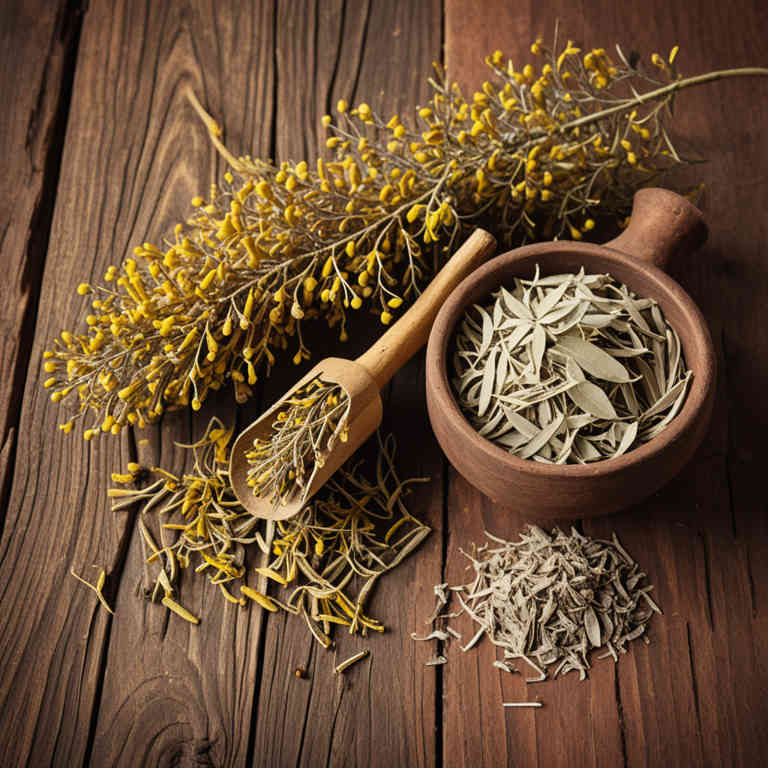10 Best Cassia Angustifolia Preparations

The best medicinal preparations of Cassia angustifolia are teas, decoctions, mucillages, tinctures, and capsules, each offering unique benefits for health.
Teas made from the leaves or seeds are commonly used to support digestive health and reduce inflammation.
Decoctions involve boiling the herb to extract its active compounds, often used for more potent therapeutic effects.
Mucillages, derived from the plant's fibers, are valued for their soothing properties in treating gastrointestinal issues.
Tinctures provide a concentrated form of the herb, ideal for quick absorption and targeted use.
Capsules offer a convenient and standardized way to consume Cassia angustifolia for consistent dosing.
Below there's a list of the 10 best herbal preparations of cassia angustifolia for medicinal purposes.
- 1. Teas
- 2. Decoctions
- 3. Mucillages
- 4. Tinctures
- 5. Capsules
- 6. Oils
- 7. Creams
- 8. Syrups
- 9. Lozenges
- 10. Oinments
1. Teas
Cassia angustifolia teas is commonly used to relieve constipation and promote digestive health.
This herbal preparation is widely recognized for its ability to treat gastrointestinal issues such as irregular bowel movements, bloating, and indigestion. The most common medicinal uses include alleviating symptoms of constipation, reducing inflammation in the digestive tract, and supporting overall gut function. The bioactive constituents responsible for these effects include compounds like sennoside A and B, which are anthraquinone glycosides known for their laxative properties.
Additionally, the tea contains flavonoids and polyphenols that contribute to its anti-inflammatory and antioxidant benefits.

2. Decoctions
Cassia angustifolia decoctions is commonly used to treat digestive issues, constipation, and skin conditions due to its laxative and anti-inflammatory properties.
These decoctions are often employed in traditional medicine to alleviate symptoms of irritable bowel syndrome, hemorrhoids, and inflammatory skin disorders. The primary bioactive constituents include compounds such as sennosides, which are glycosides responsible for its laxative effects, and flavonoids, which contribute to its anti-inflammatory and antioxidant activities. Additionally, the decoctions contain tannins and other polyphenols that support its therapeutic applications.
Overall, Cassia angustifolia decoctions are valued for their ability to promote bowel movement and reduce inflammation in various health conditions.

3. Mucillages
Cassia angustifolia mucillages is commonly used to treat digestive disorders, constipation, and inflammation due to its soothing and demulcent properties.
The mucillages are derived from the seeds of the plant and are known for their ability to form a protective coating in the gastrointestinal tract. Common medicinal uses include alleviating symptoms of irritable bowel syndrome, reducing intestinal irritation, and acting as a natural laxative. The bioactive constituents responsible for these effects include mucilage polysaccharides, tannins, and flavonoids, which have anti-inflammatory, antioxidant, and mild laxative properties.
These compounds work together to provide relief from digestive discomfort and promote gut health.

4. Tinctures
Cassia angustifolia tinctures is commonly used to treat digestive issues, such as constipation, and to support urinary tract health.
These tinctures are also used for their laxative effects and to manage symptoms of diabetes by helping regulate blood sugar levels. The most common medicinal uses include treating constipation, promoting bowel movements, and supporting metabolic functions. The bioactive constituents responsible for these effects include compounds like cassia lignans, which have anti-inflammatory and antioxidant properties, as well as sennosides, which act as natural stimulant laxatives.
Additionally, the presence of flavonoids and other phytochemicals contributes to its therapeutic benefits.

5. Capsules
Cassia angustifolia capsules is commonly used to treat digestive disorders, constipation, and inflammatory conditions.
The most common medicinal uses include alleviating symptoms of irritable bowel syndrome, reducing inflammation in the gastrointestinal tract, and managing diabetes due to its hypoglycemic properties. The bioactive constituents responsible for these effects include compounds such as senna glycosides, which act as natural laxatives, and flavonoids, which have anti-inflammatory and antioxidant properties. Additionally, the presence of tannins and mucilage contributes to its soothing effects on the digestive system.
These components work synergistically to provide the plant's therapeutic benefits.

6. Oils
Cassia angustifolia oils is commonly used to treat digestive issues, skin conditions, and inflammatory disorders.
The most common medicinal uses include alleviating symptoms of constipation, reducing inflammation in conditions like eczema and psoriasis, and managing symptoms of irritable bowel syndrome. The bioactive constituents responsible for these effects include flavonoids, tannins, and essential oils, which possess anti-inflammatory, antimicrobial, and astringent properties. These compounds help soothe the digestive tract, reduce skin irritation, and combat bacterial infections.
Overall, Cassia angustifolia oils are valued for their versatile therapeutic applications in traditional and modern medicine.

7. Creams
Cassia angustifolia creams is commonly used to treat skin conditions such as eczema, psoriasis, and fungal infections due to their anti-inflammatory and antifungal properties.
These creams are also utilized for their soothing effects on irritated or inflamed skin. The most common medicinal uses include alleviating symptoms of dermatitis, reducing inflammation, and combating fungal infections like athlete's foot. The bioactive constituents responsible for these effects include flavonoids, tannins, and saponins, which exhibit anti-inflammatory, antimicrobial, and astringent properties.
These compounds work synergistically to enhance the therapeutic benefits of the herbal preparation.

8. Syrups
Cassia angustifolia syrups is commonly used to treat digestive issues, constipation, and inflammatory conditions.
The syrup is often employed in traditional medicine to alleviate symptoms of gastrointestinal disorders, such as irritable bowel syndrome and ulcerative colitis. It is also used to manage diabetes due to its hypoglycemic properties. The most common bioactive constituents include compounds like flavonoids, tannins, and saponins, which contribute to its anti-inflammatory, antimicrobial, and laxative effects.
These components work synergistically to provide the medicinal benefits associated with Cassia angustifolia syrups.

9. Lozenges
Cassia angustifolia lozenges is commonly used to relieve symptoms of respiratory conditions such as sore throat, cough, and bronchitis due to their anti-inflammatory and expectorant properties.
These lozenges are also used to treat digestive issues like indigestion and flatulence because of their carminative effects. The most common medicinal uses include alleviating throat infections, reducing inflammation in the respiratory tract, and aiding in the digestion of food. The bioactive constituents responsible for these effects include compounds such as flavonoids, tannins, and saponins, which have antimicrobial, anti-inflammatory, and digestive-stimulating properties.
These components work synergistically to provide the therapeutic benefits associated with Cassia angustifolia lozenges.

10. Oinments
Cassia angustifolia oinments is commonly used to treat skin conditions, digestive issues, and inflammatory disorders.
These oinments are widely applied for their anti-inflammatory, antidiarrheal, and laxative properties. They are often used to alleviate symptoms of constipation, hemorrhoids, and skin irritations. The bioactive constituents responsible for these effects include compounds such as sennosides, which act as natural laxatives, and flavonoids, which have anti-inflammatory and antioxidant properties.
Additionally, the presence of tannins and mucilage contributes to its soothing and protective effects on the skin and gastrointestinal tract.
